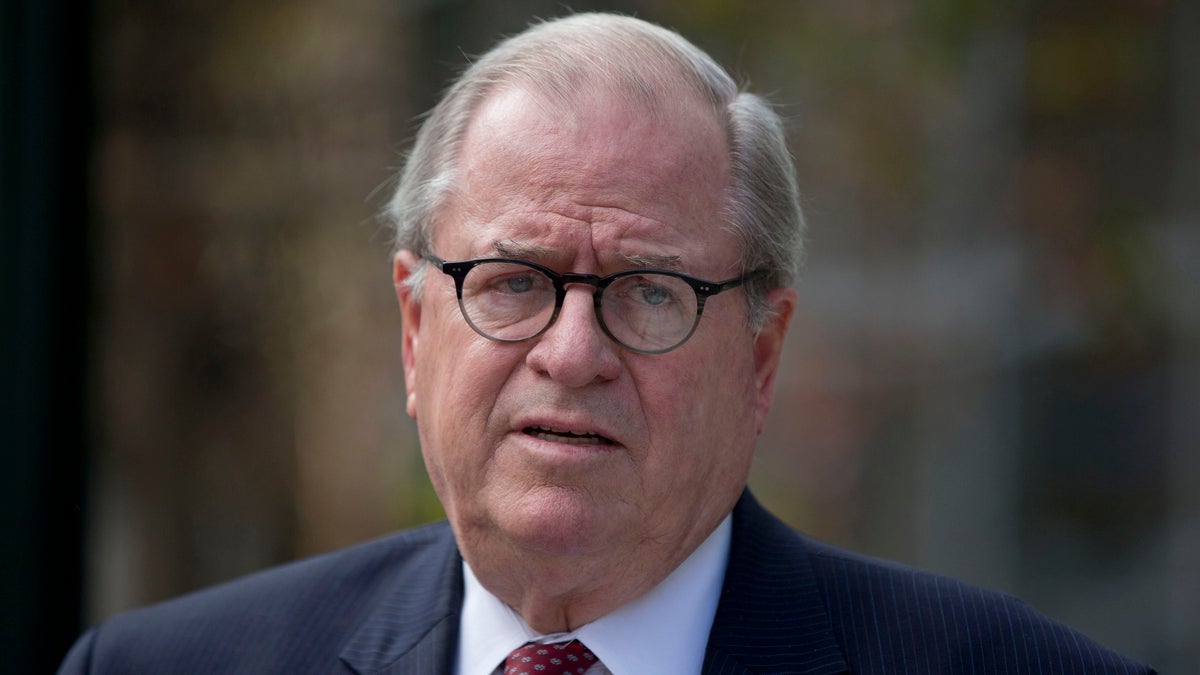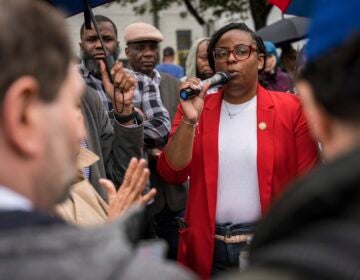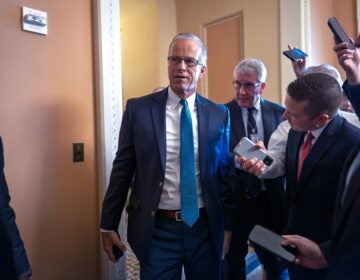New legal challenge to Pa. ballot question on raising judicial retirement age

Former Pennsylvania Supreme Court Chief Justice Ron Castille and fellow retired Justice Stephen Zappala are again challenging the wording of a referendum on increasing the mandatory judicial retirement age. (AP file photo)
On Election Day, Pennsylvania voters will decide whether to raise the retirement age for judges to 75, but the way the ballot question is posed continues to be tied up in the courts.
Here’s how the question is expected to appear on the ballot in November:
“Shall the Pennsylvania Constitution be amended to require that justices, judges and justices of the peace be retired on the last day of the calendar year in which they attain the age of 75 years?”
Retired state Supreme Court Justices Ron Castille and Stephen Zappala Sr., along with their attorney Richard Sprague, have said the question will mislead voters because it leaves out the fact that the current retirement age for judges is 70.
After a deadlocked Supreme Court effectively ruled against them earlier this month, the Philadelphia Inquirer reports Castille, Zappala and Sprague filed a second lawsuit Monday in Commonwealth Court claiming the way the question is phrased would result in “a fraud on the Pennsylvania electorate.”
Sprague and his clients were unavailable for comment, according to his assistant.
Drew Crompton, chief counsel for state Senate Republicans who approved the current wording, said there’s no need to change it.
“This is beyond grasping at straws,” he said. “This is turning the courts on its head and trying to start over when you don’t like a decision that you got from the highest court in Pennsylvania.”
Crompton said voters can read what’s called the “ballot narrative,” a longer — and plainly stated — explanation of the question.
“There will be narrative for those voters who want to know more about the question,” he said. “That information will be readily available.”
Crompton admits he can’t make voters read it, but it will be there.
WHYY is your source for fact-based, in-depth journalism and information. As a nonprofit organization, we rely on financial support from readers like you. Please give today.




